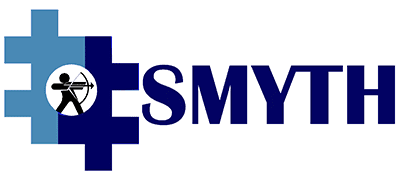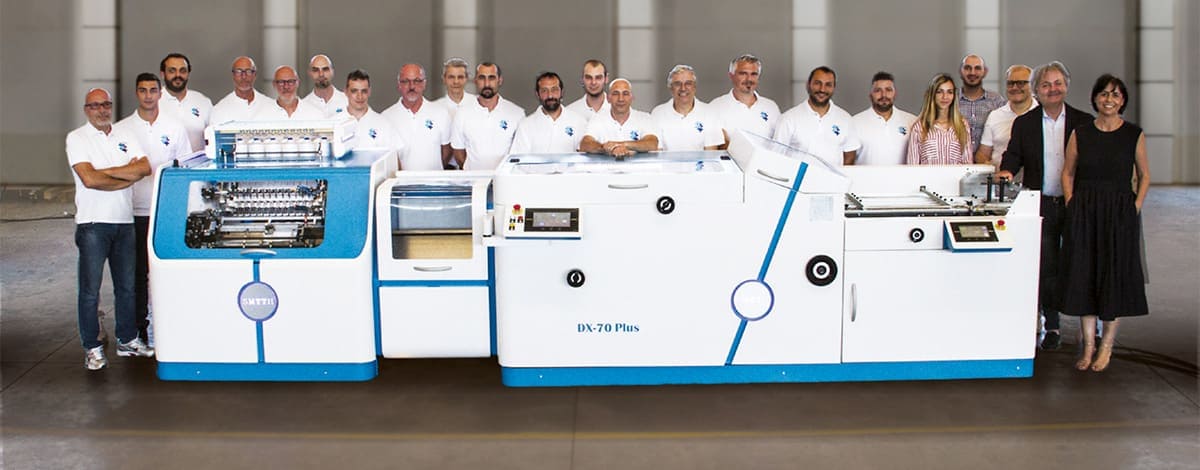
The company name “Smyth” is a reference to one of the most important innovators in modern book production: David McConnell Smyth (1833-1907). In 1879, he invented book-thread stitching, which significantly improved a book’s ability to open and lay flat and to last for a long time. At the beginning of the 20th century, the technology and its inventor were so closely linked with each other that people spoke of “Smyth book sewing”.
Foundation and first milestones
Three years after applying for a patent, David McConnell Smyth founded the Smyth Manufacturing Company in Hartford, Connecticut in the United States. That same year he started the production of a series of “Book-Sewing Machines,“ which the company continued to develop in the succeeding decades.
The introduction of the legendary “No. 12” in 1928 was another milestone. It was the first semi-automatic book-sewing machine and also the first to operate with straight needles instead of curved ones. The first fully automatic machines (“No. 12” and “No. 18”) entered the market in 1945.

European launch and further growth
A new chapter in the history of the Smyth brand began with the founding of Smyth Europe (Smyth Europea SpA) on June 1st, 1958. From then on, Smyth models 12 and 18—equipped with a metric system for the European market—were made in Italy. As soon as they were released, FRECCIA 14 and FRECCIA 20 dominated the market. From the 1960s on, Smyth began manufacturing the book-sewing machines, the SM14 and SM20.
In the early 1970s, when the Smyth Manufacturing Company ceased its manufacturing operations in the United States, it transferred all patents and rights to Smyth European Ltd. The company continued to expand and soon outpaced its American parent company on the world market. In the decades that followed, Smyth continued to introduce new technological solutions that reinforced its reputation as one of the most innovative brands in industrial book manufacturing.
In the 1990s, the company restructured itself and adapted to the market conditions of the new millennium. Since then, it has been operating under the name Smyth s.r.l. and carrying out its production in a new, modern factory in Coniolo in Piedmont.
Smyth today: 560 customers in 65 countries on five continents.
The Smyth name still stands for attention to detail, reliability, and flexible solutions. The company produces machines mainly for:
- book-thread stitching
- collating
- book-block making
- cover making
Solutions for short-run books (i.e., books-on-demand) round out Smyth‘s roster of products.
What do we at PPL especially appreciate about Smyth? Every single part of the machines that we sell are “Made in Italy.” That includes everything, beginning in the design and concept phase and continuing in the production of each carefully, hand-finished component.